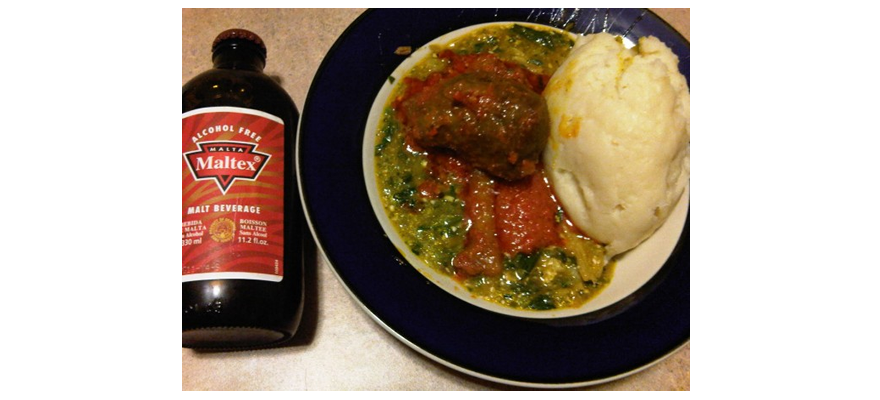Nigerian Food: Home and Away
A Nigerian far away from home can miss nothing more than our local cuisine. But in this globalised era, it's becoming easier to find egusi, garri and even kilishi beyond our borders. It is no big news that Nigerians are big travellers - whether for economic or holiday purposes - and the emirate of Dubai has become a top destination for traders dealing in gold, clothing and electronics. But no matter the money to be made, weeks or months spent away from a Nigerian kitchen can take its toll, which is why Nigerian food stores have become big business in cities as far apart as London and Guangzhou. A recent post on a blog run by an anthropology student studying the economic and cultural links between Africa and China describes one such shop:
The small room is lined with shelves and glass coolers displaying special Nigerian ingredients. Whole, frozen spicy green and red chili peppers. Plastic sachets of mint leaf, bitter leaf, mixed herbs. Thick black coils of small dried catfish. Chili powder, grounded crayfish, melon seeds, dried mustard seeds, garri powder, pounded yam, abacha (cassava matchsticks). The bottom shelf is heaped with big brown tubers of yam. There are small bottles and clear gallon jerry cans of orange-red palm oil. Curiously, the shop does not smell of anything. My friend, J, turned his shipping business office into a Nigerian food shop four years ago as a side venture. He noticed it was difficult to get Nigerian ingredients in Dubai. He is soft-spoken with a pleasant high voice and tells me that his friends make fun of him for being an Igbo man who loves to cook. Now, the food sales equal or surpass the income he gets from being a shipping agent. Importing food into Dubai’s carefully controlled business climate is no simple business. After registering for your business, a sample of your product is brought to their food safety laboratory. It is then tested and approved and the business must jump through various legal hoops to make sure the importation can go through. The shiny plastic packets are all clearly labeled in uniform shiny stickers mandated by Dubai’s importation authorities. They list the ingredients and expiration dates. A Nigerian woman who used to informally peddle food without a license was recently thrown in jail for a few months and then deported when someone tipped off the Dubai police. J once ranted about another Nigerian man who came to his shop, peering carefully at all of his prices and asking him questions about his business. A few weeks later, the man called him from the Dubai importation warehouse, desperate for help. The man had tried to copy J by importing Nigerian food. The Dubai authorities were trying to confiscate his goods because he did not have a food business license, nor were any of the products properly labeled. J could not take responsibility for the other man’s goods, so the man lost a few thousand dollars worth of product that day. –It’s that get rich quick mentality, J said, that doesn’t get you anywhere. J’s customers range from individual Nigerians living in Dubai and across the Middle East to African restaurants nearby. Once, a Nigerian woman coming from Bahrain complained to him to please, please open a shop closer to her. For now, she fills her suitcase with 60 kilograms of Nigerian ingredients every time she goes to Bahrain from Nigeria.
Continue reading here. What Nigerian food would you miss most if you were away from home? Share with us in the comments. Image source: AvartsyCooking





